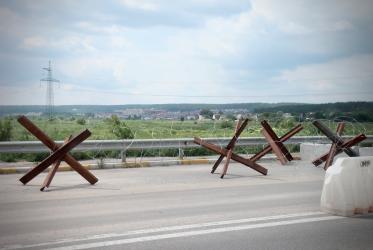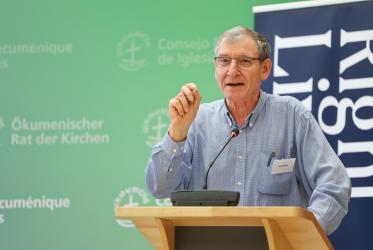Displaying 1 - 20 of 41
07 February 2024
Répondre aux besoins humanitaires en Ukraine
27 September 2022
Ukraine: Responding to humanitarian need
08 September 2022
Churches should use their voice on climate change
26 February 2020
CCIA meets in Brisbane with focus on Pacific regional priorities
19 February 2020
Church response to Australian bushfires hinges on preparation
07 January 2020
La réponse des Églises aux feux de brousse est mûrement préparée
07 January 2020
WCC condemns massacre of farmers in Philippines
12 April 2019
Le COE condamne le massacre de fermiers aux Philippines
12 April 2019
All pilgrim routes lead to COP24
11 December 2018








